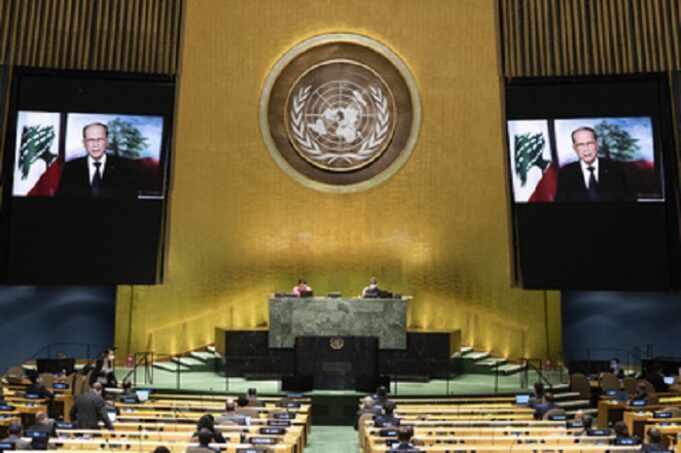It’s time that leaders across Lebanon put “people before politics” following August’s explosions in a Beirut port, said the UN chief on Sept. 23, which must serve as a wake-up call following a year of upheaval and clamor for reform on all fronts.
António Guterres was speaking at a high level meeting of the International Support Group for Lebanon to reaffirm its support for the country, which he described as now facing “a perfect storm: a protracted financial and socioeconomic crisis with an unprecedented rise in unemployment and poverty, coupled with the Covid-19 pandemic.”
‘Wake-up call’
The secretary-general said the fatal explosions of August 4 that devastated much of the capital, killing at least 200 and wounding thousands, must serve as a wake-up call.
“Eleven months after so many took to the streets calling for change, we hope for tangible steps to implement economic, social and political reforms,” he said, calling the designation of a new Prime Minister, Mustapha Adib, “a step in the right direction.”
Without the rapid formation of a government able to meet the needs and aspirations of all Lebanese and deliver on reform, Mr. Guterres said the ability to recover and rebuild would be jeopardized.
“Now is the time for transformation in a variety of sectors—including financial, banking and energy—as well as customs, public procurement and state-owned enterprises. Social reforms, including social protection, are also needed to ensure the well-being of all Lebanese, particularly the most vulnerable.”
UN led humanitarian effort
Since the explosions, the UN has led an urgent humanitarian response while looking at long-term measures to return the country to a path of stability and development, he said, adopting a three-pronged approach based on relief, early recovery, and then reform and reconstruction.
The UN chief said scaling up help from the international community was central: “Close coordination is also critical with the UN Resident and Humanitarian Coordinator in Lebanon along with governments, donors, and humanitarian and development actors and the Lebanese Armed Forces in light of their leading role in distributing relief efforts.”
Adding that now was the time “to prioritize national interest and put people before politics,” he said that with more international support and “the commitment of the Lebanese government,” everyone could play their part in safeguarding the country’s future.
Joint communique
Following the meeting, the members of the International Support Group (ISG) urged Lebanon’s leaders to unite behind a new government, in order to “meet the legitimate aspirations expressed by the Lebanese people, and committed to addressing Lebanon’s multiple and acute challenges, notably its humanitarian, socio-economic and financial crises, the Covid-19 pandemic, the reconstruction of Beirut and the restoration of Beirut’s heritage and historical buildings.”
The ISG called on leaders to undertake reforms and welcomed agreement earlier in September on a comprehensive roadmap of reforms, with a timeline for implementation.
They also reiterated the need for those reforms “to address the challenges of Lebanon and respond to the aspirations peacefully expressed by the Lebanese people.” (UN News)













